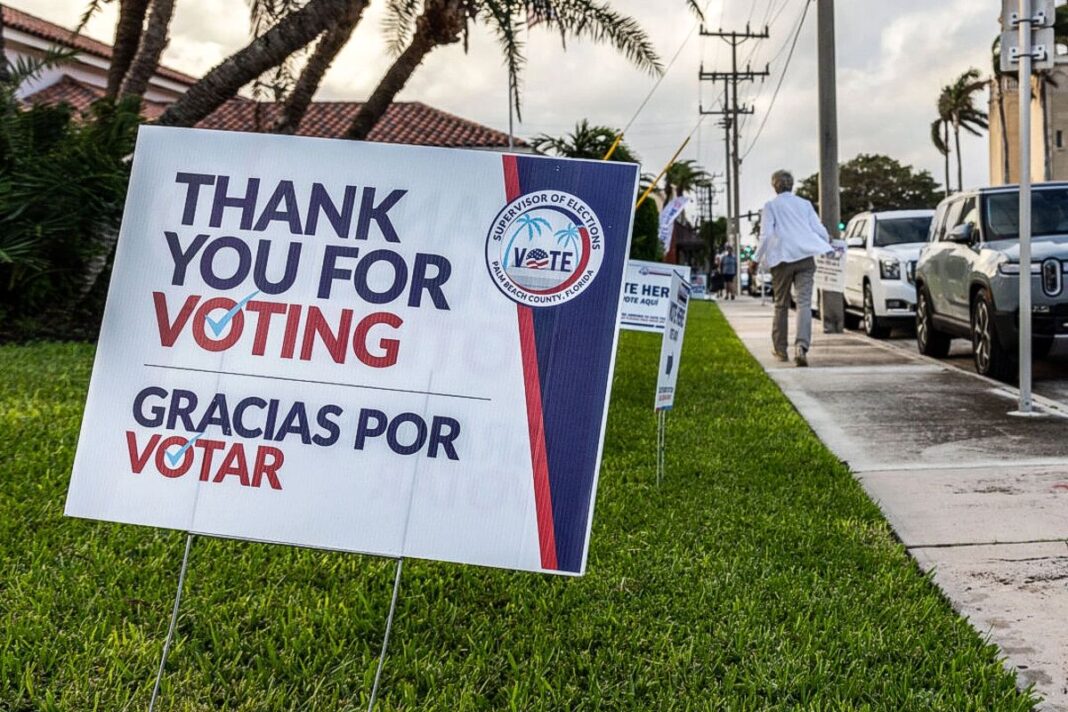The order is unconstitutional, Democrats allege.
The Democratic National Committee (DNC) and two top U.S. lawmakers on March 31 sued President Donald Trump over a recent executive order that aims to enforce the law against illegal immigrant voting and election dates.
“The Executive Order seeks to impose radical changes on how Americans register to vote, cast a ballot, and participate in our democracy—all of which threaten to disenfranchise lawful voters and none of which is legal,” says the lawsuit, filed by Democratic Party attorney Marc Elias in federal court in Washington.
Trump’s March 25 order has multiple sections. Several deal with laws that bar foreigners from registering to vote or from voting in federal elections. Trump directed the independent Election Assistance Commission to require proof of U.S. citizenship in its mail voter registration form, ordered U.S. officials to work with the Department of Government Efficiency to review voter rolls to identify noncitizens who are already registered, and told the U.S. attorney general to prosecute individuals who have illegally registered or voted.
Another prong takes aim at how some states in recent years have begun counting mailed ballots that arrive after Election Day, which the order says contravenes federal law.
A third portion says the Election Assistance Commission shall stop providing federal funds to states that don’t comply with the laws on election dates and noncitizen voting and voter registration.
The U.S. Constitution’s election clause says that states can set election dates, although Congress can alter them.
“Outside of the Elections Clause, other provisions in the Constitution place certain requirements and limitations on the regulation of elections—but none allows the President to override the will of the States or Congress in this space,” the new suit states.
The legal challenge also says that the Election Assistance Commission is an independent agency over which the president, who appoints commissioners, has no control, and that federal law lets applicants who vote in federal elections attest to citizenship with a signature as opposed to requiring proof from documents such as a passport.






